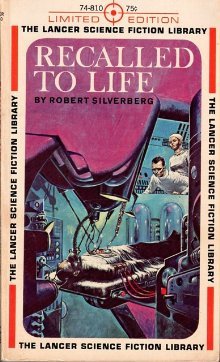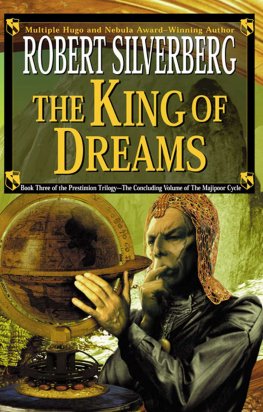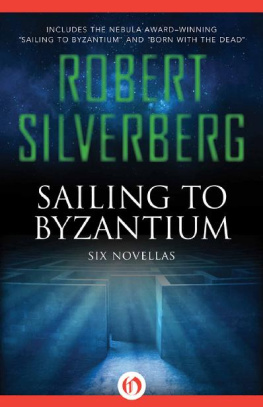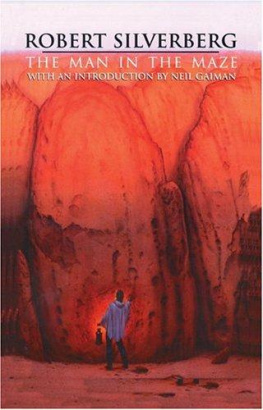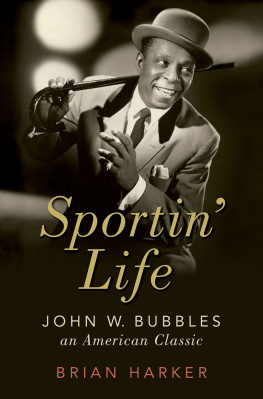Recalled to Life
by Robert Silverberg
That morning James Harker was not expecting anything unusual to happen. He had painstakingly taught himself, these six months since the election, not to expect anything. He had returned to private law practice, and the Governorship and all such things were now bright memories, growing dimmer each month.
Morning of an Ex-Governor. There was plenty to do: the Bryant trust-fund business was due for a hearing next Thursday, and before that time Harker had to get his case in order. A pitiful thing: old Bryant, one of the glorious pioneers of space travel, assailed by greedy heirs in his old age. It was enough to turn a man cynical, Harker thought, unless a man happened to be cynical already.
He reached across his desk for the file-folder labelled BRYANT: Hearing 5|16|33. The sound of the outer-office buzz trickled into the room, and Harker realized he had accidentally switched on the interoffice communicator. He started to switch it off; he stopped when he heard a dry, thin voice say, Is the Governor in?
His secretary primly replied, Do you mean Mr. Harker?
Thats right.
Oh. Hehe doesnt like to be called the Governor, you know. Do you have an appointment with him?
Im afraid not. Terribly foolish of meI didnt realize Id need one. I dont live in New York, you see, and Im just here for a few days
Im extremely sorry, sir. I cannot permit you to see Mr. Marker without an appointment. Hes extremely busy, you see.
Im quite aware of that, came the nervous, oddly edgy voice. But its something of an emergency, and
Dreadfully sorry, sir. Wont you phone for an appointment?
To the eavesdropping Harker, the conversation sounded like something left over from his Albany days. But he was no longer Governor of New York and he was no longer the fair-haired boy of the National Liberal Party. He wasnt being groomed for the Presidency now. And, suddenly, he found himself positively yearning to be interrupted.
He leaned forward and said, Joan, Im not very busy right now. Suppose you send the gentleman in.
Oh-uhMr. Harker. Of course, Mr. Harker. She sounded startled and irritated; perhaps she wanted to scold him for having listened in. Harker cut the audio circuit, slipped the Bryant file out of sight, cleared his desk, and tried to look keenly awake and responsive.
A timid knock sounded at his office door. Harker pressed the open button; the door split laterally, the segments rising into the ceiling and sliding into the floor, and a man in short frock coat and white unpressed trousers stepped through, grinning apologetically. A moment later the door snapped shut behind him.
Mr. Harker?
Thats right.
The visitor approached Harkers desk awkwardly; he walked as if his body were held together by baling wire, and as if his assembler had done an amateur job of it. His shoulders were extraordinarily wide for his thin frame, and long arms dangled loosely. He had a wide, friendly, toothy grin and much too much unkempt soft-looking brown hair. He handed Harker a card. The lawyer took it, spun it round right-sideup so he could read it, and scanned the neat engraved characters. It said:
BELLER RESEARCH LABORATORIES
Litchfield, N.J.
Dr. Benedict Lurie
Harker frowned in concentration, shook his head, and said, Im sorry, Dr. Lurie. Im afraid Ive never heard of this particular laboratory.
Understandable. We dont seek publicity. Id be very surprised if you had heard of us. Luries head bobbed boyishly as he spoke; he seemed about as ill-at-ease a person as Harker had ever met.
Cigarette? Harker asked.
Oh, nonever!
Grinning, Harker took one himself, squeezed the igniting capsule with his index-fingers nail, and put the pack away. He leaned back. Luries awkwardness seemed to be contagious; Harker felt strangely fidgety.
I guess youre wondering why I came here to see you, Mr. Harker.
Yes, I am.
Lurie interspliced his long and slightly quivering fingers, then, as if dissatisfied, separated his hands again, crossed his legs, and gripped his kneecaps. He blinked and swivelled his chair slightly to the left. Sensing that the sun slanting through the window behind the desk was bothering Lurie, Harker pressed the opaque button and the rooms three windows dimmed.
Lurie said finally, Ill begin at the beginning, Mr. Harker. The Beller Research Laboratories were established in 2024 by a grant from the late Darwin F. Beller, of whom you may have heard.
The oil magnate, Harker said. And a notorious crank. The lawyer began to regret his impulsive action in inviting the gawky stranger in to see him.
Yes. Beller of Beller Refineries. Mr. Beller provided our group with virtually unlimited funds, established us in a secluded area in New Jersey, and posed us a scientific problem: could we or could we not develop a certain valuable process? Ill be more specific in a moment. Let me say that many of the men Mr. Beller assembled for the project were openly skeptical of its success, but were willing to trya triumphant demonstration of the scientific frame of mind.
Or of the willingness to grab a good thing when it comes along, Barker thought. He had had little experience with scientists, but plenty with human beings. Luries speech sounded as if it had been carefully rehearsed.
To come to the point, Lurie said, uncrossing his legs again. After eight years of research, our project has reached the point of success. In short, weve developed a workable technique for doing what we had hoped to do. Now we need a legal adviser.
Harker became more interested. This is where Im to come in, I suppose?
Exactly. Our process is, to say the least, a controversial one. We foresee multitudes of legal difficulties and other problems.
Im not a patent lawyer, Dr. Lurie. Thats a highly specialized field of which I know very little. I can give you the name of a friend of mine
Were not interested in a patent, Lurie said. We want to give our process to mankind without strings. The problem is, will mankind accept it?
A little impatiently Harker said, Suppose you get down to cases, then. Its getting late, and I have a lot of work to do before lunch-time.
A funny little smile flickered at the corners of Luries wide mouth. He said, flatly, All right. Weve developed a process for bringing newly-dead people back to life. It works if theres no serious organic damage and the body hasnt been dead more than twenty-four hours.
For a long moment there was silence in Harkers office. Harker sat perfectly still, and it seemed to him he could hear the blood pumping in his own veins and the molecules of room-air crashing against his ear-drums. He fought against his original instincts, which were to laugh or to show amazement.
Finally he said, Ill assume for the sake of discussion that what you tell me is true. If it is, then you know youre holding down dynamite.
We know that. Thats why we came to you. Youre the first prominent figure who hasnt thrown me out of his office as soon as I told him why I had come.
Sadly Harker said, Ive learned how to reserve judgment. Ive also learned to be tolerant of crackpots or possible crackpots. I learned these things the hard way.
Do you think Im a crackpot, Mr. Harker?
I have no opinion. Not yet, anyway.
Does that mean youll take the case?
Did I say that? Harker stubbed his cigarette out with a tense stiff-wristed gesture. It violates professional ethics for me to ask you which of my colleagues you approached before you came to me, but Id like to know how many there were, at least.
You were fourth on the list, Lurie said.
Umm. And the others turned you down flat?
Luries open face reddened slightly. Absolutely. I was called a zombie salesman by one. Another just asked me to leave. The third man advised me to blow up the labs and cut my throat. So we came to you.

